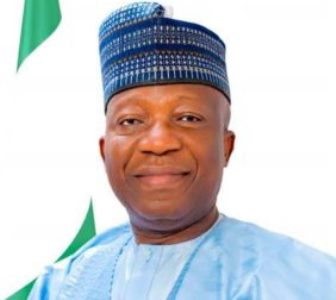The Director-General, National Institute for Legislative and Democratic Studies (NILDS) Prof. Abubakar Sulaiman has tasked political parties to ensure inclusion of more women, youths and Persons with Disabilities (PWDs) in governance.
Sulaiman said this at a roundtable on inclusive governance co-organized by Westminster Foundation for Democracy (WFD) and other partners on Tuesday in Abuja.
He also urged President Bola Tinubu to appoint PWDs into his cabinet as Ministers.
The DG charged on political parties to present more women, youths and PWDs in elections to increase their chances in governance.
“When I called for the appointment of youth below 40 as Minister of Youth and Sports, the All-Progressives Congress (APC) Chairman promised to take the message up.
“The President Bola Tinubu did not just appoint a youth below 40, he appointed two of them as ministers of the Federal Republic of Nigeria; I call on the President to appoint PWD into key decision-making offices in the federal cabinet.
“When political parties nominate women as representatives in elections, it opens up opportunities for women to be elected into office.
“Conversely, when they fail to bring up women during nominations, the women are automatically cut off,” he said.
Sulaiman urged political parties to stop meeting at night and reorganise their activities to accommodate women to enhance participation.
In her remarks, the Chairman, House Committee on Women Affairs and Social Development, Rep. Kalifat Ogbara (APC-Lagos state) said that it should be mandatory for political parties to field more women as candidates in elections.
She recommended that political parties with single digit of women candidates should be disqualified from participating in election.
According to her, as a nation with about 50 per cent of our population being women and they will decide for the potentials of half of the population.
“We are likely to go nowhere because it is only when women are properly empowered and of course our youth are encouraged that the nation can develop,” she said.
Mr James Lalu, the Executive Secretary, National Commission for Persons with Disabilities (NCPWD) said that the commission plans to seal off building that without access facilities for PWDs from Jan. 16.
He said that public organisations whose building does not conform with the lay down conditions in the disability act would have their buildings locked.
Lalu said that there were no fewer than 35 million persons with disabilities in Nigeria saying that they were of great political value.
Lalu, however said that they were not often involved in decision-making process saying that politicians only found them relevant only during elections.
The executive secretary said that the disability act was being reviewed by the National Assembly to include clauses that would enforce inclusion of PWDs in politics.
Earlier, the Country Representative of Westminster Foundation for Democracy (WFD) Mr Adebowale Olorunmola said that the foundation had been in existence for over three decades and had been supporting democracy in over 30 countries.
Represented by the Programmes Coordinator, Mr Olumide Olanira, Olorunmola said that the foundation had been working with political parties, Civil Society Organisations (CSO) and the the National Assembly to support democracy in Nigeria for over 12 years.
He said the number of women in government had continued to decline saying that a lot was dependent on the political parties in politics.
Olorunmola said that political parties must make deliberate efforts to support women and PWDs emerged as flag bearers, contest and win elections.
In her remarks, Mrs Yemisi Nathaniel, the Programmes Coordinator for Women’ Rights Advancement and Protection Alternative (WRAPA) said that political parties should be supported to develop a gender policy.
She said that until an inclusive gender policy was developed in all political parties, the issue of women, youth and PWDs inclusion would not be addressed.
Nathaniel called for joint stakeholders’ approach to support all political parties in developing gender policies that would put exclusion matters to rest.


